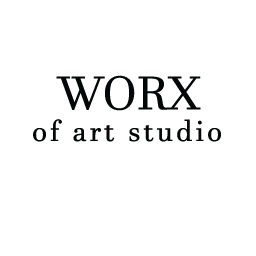Introduction:
Supply chain management (SCM) is the backbone of any business. It involves the movement of goods and services from suppliers to customers, ensuring efficiency and reducing costs. With businesses facing a constantly evolving market landscape, SCM needs to be optimized for better cost control, customer satisfaction, and competitive advantage.
In this article, we will explore how companies like ProcurementNation.com leverage supply chain strategies to stay ahead in the market. ProcurementNation.com specializes in enhancing procurement processes and integrating advanced supply chain systems to help businesses streamline their operations. Let’s explore how these processes work and why they matter.
What is Supply Chain Management?
Supply chain management refers to the process of overseeing and managing the flow of goods, services, information, and finances across various stages, from suppliers to manufacturers to the final consumer. The goal is to ensure products are delivered in the most cost-efficient and timely manner while maintaining quality standards.
Key Components of SCM
- Procurement: The process of sourcing raw materials, components, and services.
- Logistics: The movement of goods between locations, including transportation and warehousing.
- Production: The transformation of raw materials into finished products.
- Inventory Management: Ensuring the right amount of stock is available to meet demand without overstocking.
- Demand Forecasting: Predicting future customer demand based on historical data and market analysis.
- Order Fulfillment: The complete process of receiving, processing, and delivering customer orders.
ProcurementNation.com and Its Role in Supply Chain Optimization
ProcurementNation.com specializes in supply chain solutions, particularly in optimizing procurement practices and integrating technology to improve efficiency. Here’s how the company plays a vital role in transforming supply chain operations:
1. Enhancing Supplier Management
ProcurementNation.com uses advanced software to help companies manage their supplier relationships more effectively. By consolidating supplier data and performance metrics into one platform, businesses can evaluate the reliability and competitiveness of their suppliers.
- Supplier performance analysis: Assessing the on-time delivery and quality of goods from suppliers to ensure they meet business standards.
- Negotiation management: Using data-driven insights to help procurement teams negotiate better terms and prices with suppliers.
2. Streamlining Procurement Processes
Automation of procurement processes helps eliminate inefficiencies like human errors and delays. ProcurementNation.com aids businesses in automating requisitions, approvals, and invoice management through seamless cloud-based solutions.
- Automated requisition system: Orders and purchase requests are automatically generated based on inventory levels and demand forecasts.
- Invoice matching and approval: Matching invoices with purchase orders and receipts automatically ensures accuracy and reduces processing time.
The Role of Technology in Supply Chain Management
Technology is a key driver in optimizing the supply chain. From real-time data analytics to automation, new tools are revolutionizing how supply chains operate.
1. Cloud-Based Supply Chain Solutions
Cloud technology provides businesses with the flexibility to manage their supply chains from anywhere at any time. With cloud solutions, companies can share real-time data with suppliers and logistics providers, improving visibility and collaboration.
- Real-time visibility: Businesses gain an overview of their supply chain, helping them track products, shipments, and orders.
- Collaboration tools: Cloud systems enable better communication between teams, suppliers, and customers.
2. Artificial Intelligence and Machine Learning
AI and machine learning are taking supply chains to the next level. These technologies predict demand trends, optimize routes, and forecast potential disruptions.
- Demand forecasting: AI can analyze historical data to predict future customer demand and adjust procurement strategies accordingly.
- Route optimization: Machine learning helps logistics companies identify the most efficient routes for delivery, reducing transportation costs and delivery times.
3. Internet of Things (IoT) in Supply Chain
IoT is revolutionizing inventory management and shipment tracking by connecting physical objects to the internet, allowing them to communicate real-time data.
- Smart inventory tracking: RFID tags and GPS sensors track products as they move through the supply chain.
- Predictive maintenance: IoT sensors can monitor the health of machinery, predicting when maintenance is needed before equipment breaks down.
The Importance of Demand Forecasting in SCM
Accurate demand forecasting is critical in ensuring a smooth and efficient supply chain. ProcurementNation.com offers sophisticated demand forecasting tools to help businesses predict customer needs and adjust their procurement strategies.
Key Benefits of Demand Forecasting
- Optimal stock levels: Preventing overstocking and understocking of inventory.
- Reduced costs: Minimizing waste and excess inventory reduces storage and holding costs.
- Improved customer satisfaction: Meeting customer demand in a timely manner increases customer loyalty.
Techniques for Effective Demand Forecasting
- Time series analysis: Using historical data to predict future demand based on past trends.
- Causal modeling: Analyzing external factors (e.g., economic conditions, holidays) that affect demand.
- Machine learning: Leveraging AI to analyze complex data patterns and generate accurate predictions.
Supplier Collaboration and Risk Management
In today’s globalized economy, businesses are increasingly reliant on suppliers located around the world. Effective supplier collaboration and risk management are crucial in ensuring a smooth supply chain.
Supplier Collaboration Best Practices
- Regular communication: Maintaining frequent contact with suppliers ensures both parties are aligned on expectations and requirements.
- Vendor scorecards: Tracking and evaluating supplier performance helps businesses identify risks and opportunities for improvement.
- Long-term relationships: Building strong partnerships with suppliers creates mutual trust, which can lead to better pricing, priority service, and better delivery times.
Managing Supply Chain Risks
Supply chains face numerous risks, including natural disasters, political instability, and supply shortages. ProcurementNation.com helps companies develop strategies to mitigate these risks.
- Diversifying suppliers: Relying on a single supplier can lead to vulnerabilities. By working with multiple suppliers, companies reduce the risk of disruptions.
- Contingency planning: Preparing for supply chain disruptions by developing emergency response plans and backup suppliers.
Sustainable Practices in Supply Chain
As sustainability becomes an increasing priority for businesses, supply chains must evolve to meet environmental goals.
Benefits of Sustainable Supply Chains
- Cost savings: Sustainable practices can reduce waste, lower energy consumption, and improve operational efficiency.
- Brand reputation: Consumers increasingly prefer brands that prioritize sustainability.
- Regulatory compliance: Meeting environmental regulations ensures businesses avoid fines and penalties.
Steps to Achieve Sustainability
- Sustainable sourcing: Procurement teams can choose suppliers who prioritize eco-friendly practices and materials.
- Reducing waste: Implementing waste reduction practices, such as recycling and reusing materials, contributes to a more sustainable supply chain.
- Carbon footprint reduction: Businesses can reduce their carbon footprint by optimizing transportation routes and using energy-efficient equipment.
Inventory Management and Its Impact on Supply Chain
Inventory management is a critical aspect of supply chain efficiency. ProcurementNation.com helps businesses optimize their inventory levels to meet demand while minimizing costs.
Strategies for Effective Inventory Management
- Just-in-time (JIT) inventory: Minimizing inventory levels by receiving goods only when they are needed.
- Safety stock: Maintaining a buffer stock to prevent stockouts due to unexpected demand fluctuations or supply disruptions.
- ABC analysis: Categorizing inventory items based on their value and usage to focus on managing the most important items.
The Role of Inventory Optimization Software
Using advanced software to track inventory, predict demand, and manage stock levels can reduce errors and improve operational efficiency. Features include:
- Real-time tracking: Monitor inventory levels in real-time to ensure the right stock is available.
- Automated ordering: Automatically reorder stock when levels fall below a certain threshold.
Conclusion: The Future of Supply Chain Management
Supply chain management is a complex but essential function for businesses across all industries. By leveraging tools such as demand forecasting, automation, and RFID technology, businesses can streamline operations, reduce costs, and enhance customer satisfaction.
ProcurementNation.com plays a crucial role in helping businesses optimize their supply chains by providing innovative solutions for procurement, logistics, and inventory management. By focusing on technology, sustainability, and risk management, businesses can build resilient supply chains capable of thriving in an increasingly competitive and unpredictable market.
Incorporating best practices, continuous improvements, and effective supplier collaboration will ensure that companies not only survive but thrive in the evolving world of supply chain management.
FAQs
What is ProcurementNation.com?
ProcurementNation.com is a platform specializing in procurement and supply chain solutions. It helps businesses streamline procurement processes, manage supplier relationships, and optimize supply chain efficiency.
How does ProcurementNation.com improve supply chain management?
ProcurementNation.com enhances supply chain operations by offering supplier management tools, automated procurement systems, demand forecasting, and real-time inventory tracking. These features improve efficiency, reduce costs, and enhance supplier collaboration.
What technologies does ProcurementNation.com use in the supply chain?
The platform utilizes cloud-based solutions, AI-driven demand forecasting, IoT-enabled inventory tracking, and automated procurement software. These technologies improve real-time decision-making, optimize logistics, and enhance inventory control.
Why is supplier management important in supply chain operations?
Effective supplier management ensures businesses receive quality products on time at competitive prices. ProcurementNation.com helps businesses evaluate suppliers, negotiate better terms, and build long-term partnerships to mitigate supply chain risks.
How does demand forecasting help businesses?
Demand forecasting predicts customer needs, helping businesses maintain optimal inventory levels. This prevents overstocking or stockouts, reduces storage costs, and ensures timely order fulfillment, leading to better customer satisfaction.
What role does sustainability play in supply chain management?
Sustainability in the supply chain reduces waste, lowers carbon emissions, and ensures compliance with environmental regulations. ProcurementNation.com supports sustainable sourcing, eco-friendly logistics, and waste reduction strategies for a greener supply chain.





